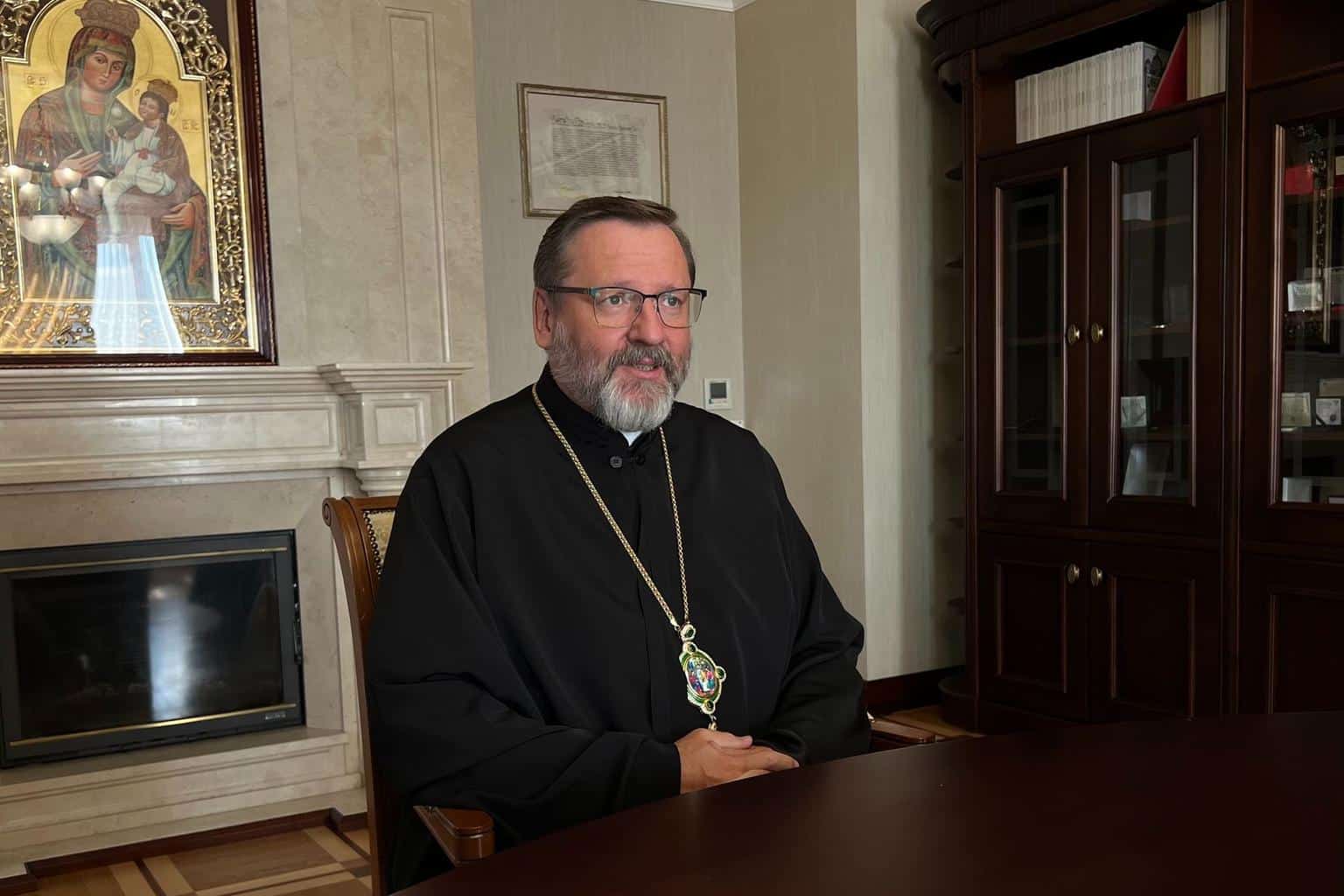New law banning Russian Church in Ukraine defended by country’s top Catholic archbishop
A new law in Ukraine banning the activities of the Russian Orthodox Church (ROC) aims to prevent the weaponisation of religion in the country, according to the head of the Ukrainian Greek Catholic Church. On 20 August, Ukraine’s Parliament adopted Law 8371, which prohibits activities by the ROC in Ukraine and bans the activities of The post New law banning Russian Church in Ukraine defended by country’s top Catholic archbishop appeared first on Catholic Herald.

A new law in Ukraine banning the activities of the Russian Orthodox Church (ROC) aims to prevent the weaponisation of religion in the country, according to the head of the Ukrainian Greek Catholic Church.
On 20 August, Ukraine’s Parliament adopted Law 8371, which prohibits activities by the ROC in Ukraine and bans the activities of any associated religious organisations affiliated with Moscow.
Major Archbishop Sviatoslav Shevchuk, who heads the Ukrainian Greek Catholic Church, argues that Russia has used the ROC “as a tool of militarisation”. He described it being used like “a neurotropic weapon” – something that is “neurotropic” affects nerve tissue, deep in the body.
Speaking to German government official Lisa Geike, Shevchuk said the new law also aims to offer protection against ideology and narratives being pushed about Ukraine being part of the “Russian world” and about establishing a “Russian peace” in Ukraine.
The major archbishop emphasised that the law should actually protect religious freedom from manipulation, while also acknowledging that “it is important to monitor how it will be implemented in practice”.
The Orthodox Church of Ukraine (OCU) and members of the Ukrainian Council of Churches and Religious Organisations supported the bill as it passed into law, emphasising that religious freedoms are safe in Ukraine even during wartime.
“The Moscow Patriarchate justifies pogroms and restrictions on religious freedom, torture and murders of priests and pastors, and cynically tramples on God’s instructions and basic norms of universal morality,” the council said in a statement.
Criminal proceedings have been made against over 100 priests of the ROC for war-related crimes, the Security Service of Ukraine said on 20 August.
Heorhiy Kovalenko, a representative of the OCU and who switched from the Moscow Patriarchate in 2019, told the Kyiv Post that the law does not ban any specific Church, but only restricts the activities of Ukrainian religious organisations if they continue cooperating with the Russian state.
“Finally the [Ukrainian] state has the political will to ensure that religion is not used as a tool for political propaganda and aggression,” Kovalenko told the Kyiv Post, before explaining how the law is expected to be implemented.
“Religious communities should be focused on religion. The law refers to ‘affiliated’ organisations. The authorised state body conducts an examination and issues an order requesting that the organisation cease cooperation with Russia. If they refuse, legal action and the suspension of the organisation’s activities may follow. But if the organisation severs ties with Russia, it can continue functioning.”
President Volodymyr Zelenskiy declared that the new law is there to ensure “our spiritual independence”, speaking in a video statement.
He added: “This is what we have been talking about with members of the Council of Churches and Religious Organisations. And in the coming days I will talk about it with representatives of the Ecumenical Patriarch Bartholomew [based in Istanbul]. We will continue to strengthen our Ukraine, our society.”
Defending the role of the ROC in Ukraine, ROC Bishop Metropolitan Klyment said it is independent of Moscow, and called the new law unjust.
“The ROC is independent and self-governing in its administration,” the bishop said.
“It is not subordinated to any centres within Ukraine, that is, to any centres other than the Kyiv Metropolis. And certainly not to any centre outside of Ukraine, whether it is in a country that is called the aggressor state, or in any other country,” the bishop added.
Russia illegally annexed Crimea in 2014 and launched an invasion of Ukraine in February 2022. It has been strongly supported by Russian Orthodox Patriarch Kirill in Moscow.
In March 2024, Kirill oversaw a council that declared Russia’s invasion a “holy war”, and said Russia is protecting the world from “globalism and the victory of the West that has fallen into Satanism”.
RELATED: Zelensky’s move against the Ukrainian Orthodox Church is a step too far
Photo: Major Archbishop Sviatoslav Shevchuk, 20 August 2024. (Credit: UGCC; via Crux.)
![]()
The post New law banning Russian Church in Ukraine defended by country’s top Catholic archbishop appeared first on Catholic Herald.














